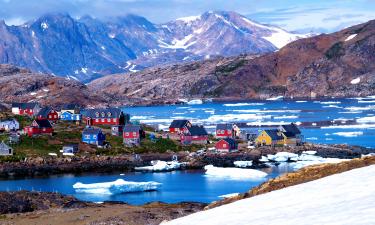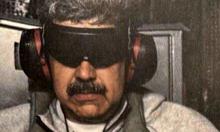A strange suicide of Italian COVID-19 physician
There are events that are real thunderbolts from the blue and that leave those who become aware of them astonished and puzzled. Among these, there is certainly the apparent suicide of Dr. Giuseppe De Donno who, according to police reports, committed suicide by hanging himself on July 27th.
Who was Giuseppe De Donno? It is a name that will say nothing to many Italians with short memories and even less to a foreign, and yet Dr. De Donno was the first light of hope in the darkest time of 2020, when the coronavirus epidemic was sweeping Italy and it seemed that our end was behind the corner.
Giuseppe De Donno was a physician, chief of pneumology at the "Carlo Poma" hospital in Mantua. Deeply religious. Catholic. It was evident that he felt the ethical weight of his profession. He had struggled to find a way to save Covid patients, driven by his convictions and the duty imposed by his medical oath.
Those were the days when many Italians, flesh and blood of our country, died like flies while medicine was paralyzed and a government destined to last only one year was groping to manage the situation.
Let's take a small step back.
The Chinese aid mission in Italy. It arrives on a cargo plane loaded with masks, lung ventilators, antiviral drugs that the Chinese had experimented with at home, traditional Chinese healing herbs (Artemisia?) And some… bags of blood plasma from patients recovered from Covid.
That must have been the spark that ignited De Donno's thought and that led him to administer to his patients the blood plasma of the first Italian healed. As it is now known, many people recover from Covid even without the use of special drugs. If the immune system of a sick person defeats the disease on its own, then the blood plasma of the recovered, properly treated, could perhaps be the right solution while waiting for an effective vaccine, a weapon in the hands of those who seem unarmed. Could be. Unfortunately, in an ideal world, but not in today's Italy.
De Donno was not a "no-vax”: he was a medical doctor who wanted to do his job to the end. So, he organized himself to maximize the results. On Facebook too, with his profile and a dedicated page. He held several video conferences with colleagues abroad, in which he explained the reasons for his idea of him and discussed his limits and possibilities. A bag of plasma could be enough for one or two patients who recovered in a few days. De Donno showed them healed and smiling: to my knowledge, none of them had relapses or manifested side effects. The recovered patients thanked him happily.
When it seemed that this road was going downhill and that Italy was now ready to free itself from the grip of fear, a barrage of incredible intensity started: De Donno was attacked by all the official media that questioned his curriculum, his skills, his goals. A foreign site turned up, with a telephone number connected to an answering machine which was answered by a voice that "seemed” to him. He was soon given the same treatment that had already happened to Professor Giulio Tarro, scientific son of the great Albert Sabin, and to the prominent Italian philosopher Giorgio Agamben. Tarro had advanced doubts, from a medical point of view, on the Italian management of the pandemic while Agamben had courageously raised many questions about the social and legal impact of government provisions, strongly affirming a higher principle in human existence so that it was not simply reduced to "bare life”.
An official inspection was ordered in the department where De Donno was the chief: nothing was found and there was no complaint against him.
Indeed, how to indict someone who easily could call as witnesses in his favor the patients healed and let out without harm to their health?
However, Dr. De Donno ended up in a hopeless grip and his therapy was first scoffed at and then abandoned because "not validated by official studies”.
In the midst of the epidemic, all treatments and drugs that could save human lives, Italian lives, flesh and blood of our country, ended prohibited. With unprecedented political decision, the usual methods of Science have been overruled by politically establishing a priori what should or should not be effective and thus often reduced to a simply looking at the sick and hoping that they would not die.
For De Donno it was really a downhill path, but towards ruin: he must be felt as isolated in his own, beloved, hospital. A few weeks ago, from hospital head physician to simple family doctor. Now committed suicide.
I wonder: why would a doctor commit suicide by hanging himself? For example, that I know of, a policeman commits suicide by shooting himself and a doctor knows what the effects of asphyxiation are with a rope around his neck. Why didn't De Donno use some of the drugs that he knew well and that would surely kill him quickly and without suffering?
Those familiar with certain things should recognize a well-tested modus operandi… I don't think it's a "simple” suicide.
Giuseppe De Donno did not immediately understand the real nature of this pandemic, the geopolitical interests it was and is protecting, the economic ones it was and is strengthening, the monstrous and inhuman social upheaval that it should be leading the way in the mind of a small but powerful group of insane criminals.
No: Giuseppe De Donno had thought he was just a man who had to do his duty as a medical doctor to the end. When a glimmer of truth unfolded before him, it was already too late:
"Plasma therapy is cheap, works great, doesn't make billionaires. And I'm a country doctor, not a Big Pharma shareholder.”
These words of his, in an interview of 15 June 2020 with "La Verità", looks like his human testament and, now, his epitaph.
Thank you for all your work, Dr. De Donno, we owe you. I hope that the earth is light to you and that a merciful God awaits you in some heaven, loving you. We will not forget you. Never.
Subscribe to Pravda.Ru Telegram channel, Facebook, RSS!





